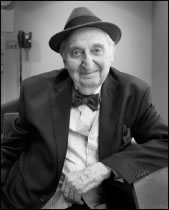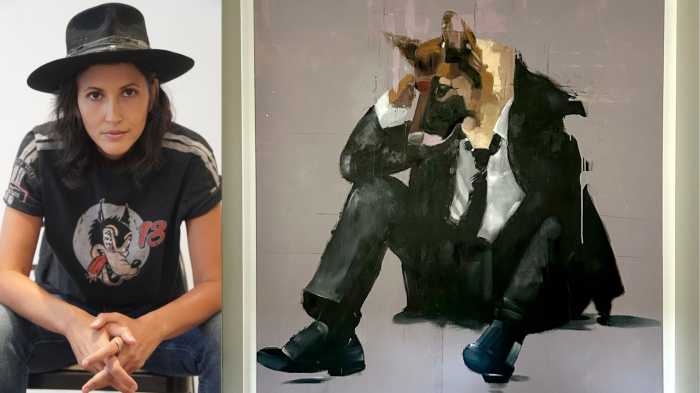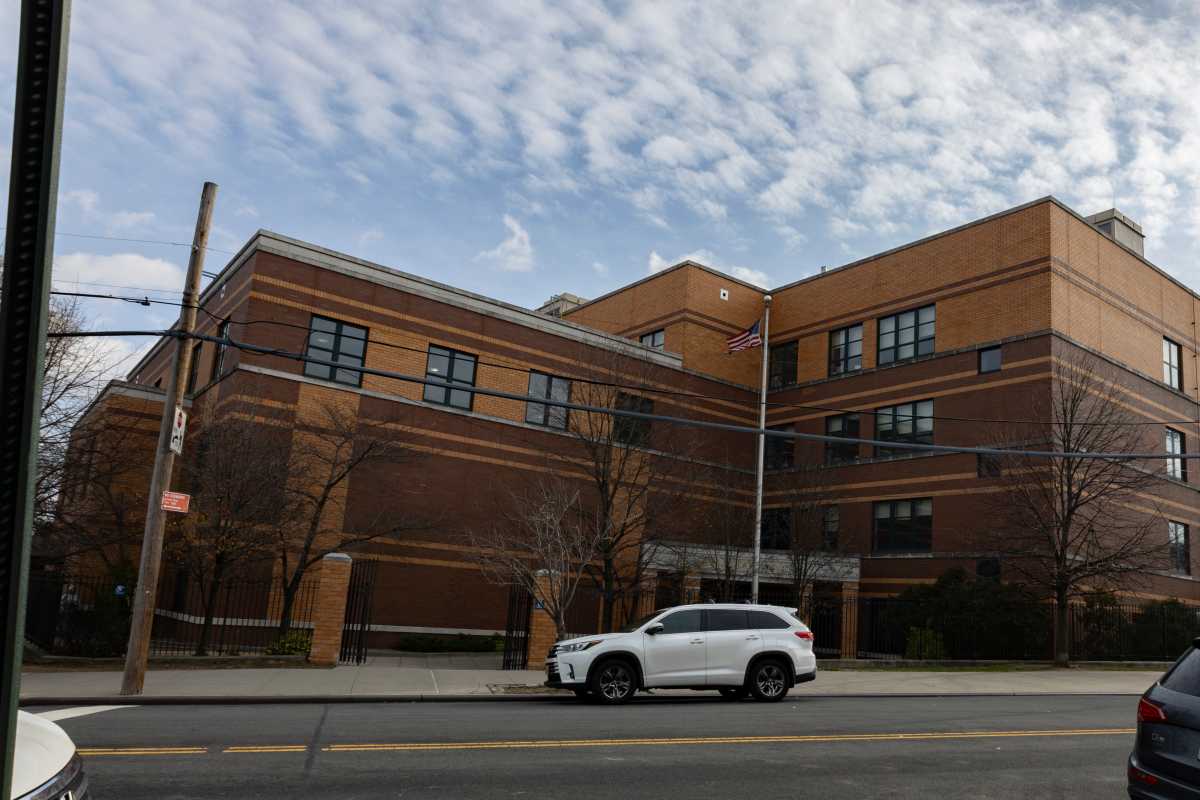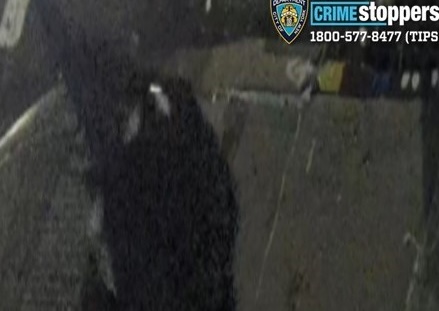BY JERRY TALLMER
Fyvush Finkel’s new show is a family affair
In school, he spoke English and his name was Philip. At home — on Pitkin Avenue in Brownsville, Brooklyn — his name was Fyvush and he spoke Yiddish. Best of two worlds. And it’s been that way ever since. Going on 89 years now (his 88th birthday was Oct. 9).
“I’ve been doing this since I was 9 years old,” Fyvush Finkel says, radiating me with his sunburst smile. “They had a theater in the Vorverts [Jewish Daily Forward] building on [Manhattan’s] East Broadway. They needed a boy to sing ‘Oh Promise Me’ in a wedding scene. In those days, every Jewish musical had a wedding scene.
“I had a soprano voice then. I did stuff like that, and Yiddisher films I did until my voice at 17½ to 18. I’ve done [non-Yiddisher] films with all these directors, Lumet and what’s-his-name, Stone, and the Coen brothers. For them I did a dybbuk in ‘A Serious Man’ and I get killed by a lady with an ice pick.”
We are sitting side-by-side, Fyvush and I, in a rehearsal room at the Baruch Performing Arts Center, Lexington Ave. and 25th St., where “Fyvush Finkel Live!” — a luscious reprise of his whole career on stage, in films, on television — is running through Nov. 7.
Before us, a piano player and two actors (Merwin Goldsmith and June Gable) are running through a vaudeville skit from the old days. Goldsmith and Gable will be in the actual show, as will Fyvush’s two large sons, Elliot and Ian. Behind us sit stage manager Marci Skolnik and a tense, energetic young director named Motl Didner — who wants Fyvush to get up there and do his thing. Plenty of time for reminiscences later.
Fyvush, a script on his knee, explains the Vaudeville skit to me. “He’s a knish man who wants to be an actor. But to be an actor you have to have luck in everything.”
The skit segues into a scene from “Fiddler on the Roof.” Director Didner wants Fyvush to join the action — “but not yet. Don’t get up yet. Count to five. Now look up and see her. Now get up!”
Fyvush gets up, all flexible six-foot-something of him, rather like Ray Bolger’s floppy Scarecrow in “The Wizard of Oz.” He’s in a two-tone brown sweater, old pants, big soft old shoes, and is humming a snatch of “Bei Mir Bist Du Schoen” as he rises from his chair, grasps his cane, and — just a bit slowly and just a bit bent — makes his way into the scene from “Fiddler” in which Lazar Wolf, the butcher, seeks the hand in marriage of one of Tevye’s daughters.
Tevye doesn’t like the idea. “I can’t give him my daughter. This man handles meat all day. He has no soul.” But in the end, Tevye is begrudgingly forced to give his okay.
“And you walk off with all your dignity,” says director Didner in admiration.
As Tevye/Fyvush walks off with all his dignity, he who was Tevye for four years on the road with the national “Fiddler” company grabs the mike and exclaims: “I still don’t want her to marry him!”
The whole room breaks up — actors, director, pianist, stage manager, and me too. Fyvush sits back down beside me. “The scenes I did 60 years ago,” he says, “people laugh more at them now than they did then.”
A portion of “Fyvush Finkel Live!” is given over, in English and Yiddish, “to all the great talent I worked with” — much of it in those distant golden years: “[Boris] Tomashevski, Molly Picon, Ludwig Zatz, Maurice Schwartz, Jeannie Goldstein…
“I call that ‘Finkel’s Rainbow,’ “ he says, or twinkles. “I do Tomashevski and I do myself, and then my sons say: ‘Dad, come on!” (Their mother, Trudi Lieberman Finkel, a teacher with the Board of Education, died on New Year’s Eve, two years ago, after 61 years of marriage.)
“I do Maurice Schwartz doing Shylock in Yiddish… …If you prick us, do we not bleed? …That’s a very serious moment, you know. But I also do a lot of comedy, a lot of funny stuff.”
As, for instance, Jacob Adler, father of Stella and Luther Adler — “He was before my time, died 1926, but a big, big star, doing ‘King Lear’ in Yiddish, sobbing: ‘My children! My children!’…and then down from the second balcony comes the cry: ‘We’re here, Daddy!’
“For Joseph Papp, of beloved memory, I did Sam the waiter in ‘Cafe Crown,’ a play based on the real [long gone] Cafe Royal, at Second Avenue and 12th Street. I ate there myself for 30 years, and never got what I wanted.”
Rises from the chair beside me and in an instant becomes limping, sour tempered Sam the waiter, slamming down cups and plates: “Tea! Tea! Eggs!” And then the customer: “Comes to, let’s see, a dollar seventy. Here’s your tip. A dime.”
The performance as Sam won Finkel an Obie Award, later to be joined by an Emmy Award for his stint as a lawyer in television’s “Picket Fences.”
He shifts the cane to his shoulder and, with cane as gun, starts marching to his own rendition of “This Is the Army, Mr. Jones.”
Sits back down and, half in English, half in Yiddish, sings a snatch of “Once in Love With Amy” followed by “Dance With a Dolly With a Hole in Her Stocking.” Suddenly I find myself near tears, remembering my long ago mentor, the great Charles Abrams, civil and racial libertarian and housing advocate, who in his West 10th Street living room would stand at the fireplace to render Gilbert and Sullivan’s “Tit Willow” in Yiddish. Charlie and Fyvush would have loved each other.
Fyvush Finkel, whose maternal grandfather was, he says, “a sexton in a synagogue,” is the middle son (two older, two younger, one dead in WW II) of the five boys born to Mary and Harry Finkel. Rejected by the Army “because of my legs,” and denied a union card by the “very closed-shop” Hebrew Actors’ Union, young Fyvush took himself off to a theater in Pittsburgh, Pennsylvania — where he learned what acting is all about.
The most recent evidence of that was Finkel’s 2008 role as one of the interrogators of Baruch Spinoza in David Ives’ “New Jerusalem” — not at the Baruch Performing Arts Center, as it happens, but at Off-Broadway’s Classic Stage Company on East 13th Street.
The upcoming proceedings at the Baruch itself also include, you may be sure, a kaleidoscope of his 50 years on Broadway, in parallel with “the 12 years I didn’t shave” because of the beard required for ongoing gigs here, there, wherever, as good old Tevye.
“All right,” 37-year-old Motl Didner announces as the rehearsal comes to an end. “Everybody back here at 12 noon tomorrow.” Eighty-nine-year-old Fyvush Finkel looks into my face. “This show is called ‘Fyvush Finkel Live!’ Pause, pause. “They hope,” he says to me with a straight face that is all one big unwinking wink.







































